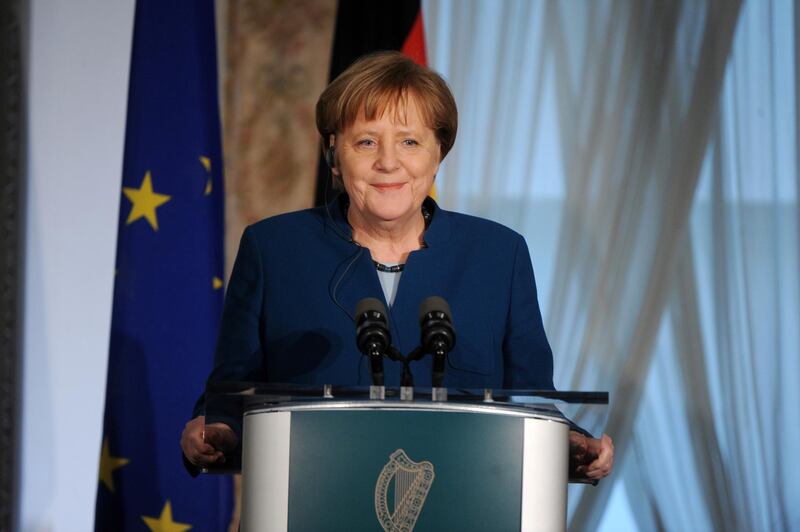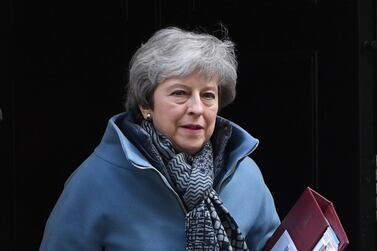German Chancellor Angela Merkel has promised to work “to the last hour” to prevent the UK crashing out of the EU.
Alongside Irish Prime Minister Leo Varadkar in Dublin on Thursday, Mrs Merkel said the two countries would stand together on Brexit, and that the peace process in Northern Ireland must be preserved.
She said Brexit was in a decisive phase and that she hoped the UK would make an offer at next week’s EU summit.
“From the German side, we will do everything in order to prevent a no-deal Brexit but we have to do this together with Britain," Mrs Merkel said.
Mr Varadkar asked for patience with the British government while it tried to reach a withdrawal agreement, but said a plan was needed soon.
"We said that if the UK had not ratified the withdrawal agreement it should come forward with a clear plan for the way forward by next week or it would leave the EU without a deal," he said.
"This is an outcome that none of us want to see. Matters continue to play out in London and I think we need to be patient and understanding of the predicament they're in.
"But of course, any further extension must have a credible and realistic way forward."
Mrs Merkel visited Ireland on Thursday for Brexit talks with Mr Varadkar and other Irish legislators.
The two leaders earlier visited the Irish border to meet people whose lives and livelihoods would be disrupted by the return of Customs posts and other obstacles.
Mrs Merkel arrived in Dublin as the British government met the opposition Labour party for talks lasting more than four hours.
British Prime Minister Theresa May’s team called the talks “detailed and productive”.
They said the negotiating teams were hoping to meet again tomorrow for “further work to find a way forward to deliver on the referendum, mindful of the need to make progress ahead of the coming European Council”.
The government replaced six ministers who resigned to vote against the government on Brexit, including Sarah Newton, who left her role in the Department for Work and Pensions more than three weeks ago.
Really pleased to be asked to join Her Majesty’s Government to support the PM and Secretary of State in delivering Brexit. pic.twitter.com/Yp3nhRENX3
— James Cleverly (@JamesCleverly) April 4, 2019
James Cleverly will replace Chris Heaton-Harris, who resigned this week as a junior Brexit minister.
The other new ministers are Justin Tomlinson, Seema Kennedy, Andrew Stephenson, Will Quince and Kevin Foster.
At the House of Lords, Brexiteers tried on Thursday to block the approval of a law that would force Mrs May to seek a delay to prevent a no-deal exit on April 12.
Lords used an unprecedented procedure to pass legislation without the approval of the government.
They were seeking additional legal guarantees that Mrs May would not lead Britain out of the bloc without a deal.
The bill passed through the House of Commons by a single vote late on Wednesday night and is now in the upper chamber.
The process of passing the bill through the Lords had a rocky start on Thursday when some members of the debating chamber tried to delay or halt the process.
Thursday's debate is expected to continue into the early hours of Friday morning, with long speeches designed to eat up debating time and stop the bill completing the necessary stages in time.
The law is being rushed through a process that usually takes months, to try to pass it before Mrs May attends a summit of EU leaders on April 10.
If successful, it would require her to obtain Parliament's approval for details of any delay, and allows MPs to propose a different extension.
The government said that it was an unnecessary measure that could have unintended consequences.
There is no time limit on the debate but those opposed to the law hope that by dragging the discussion late into the night, the chamber could adjourn until Monday and eat up the time needed to have it passed before the summit.








